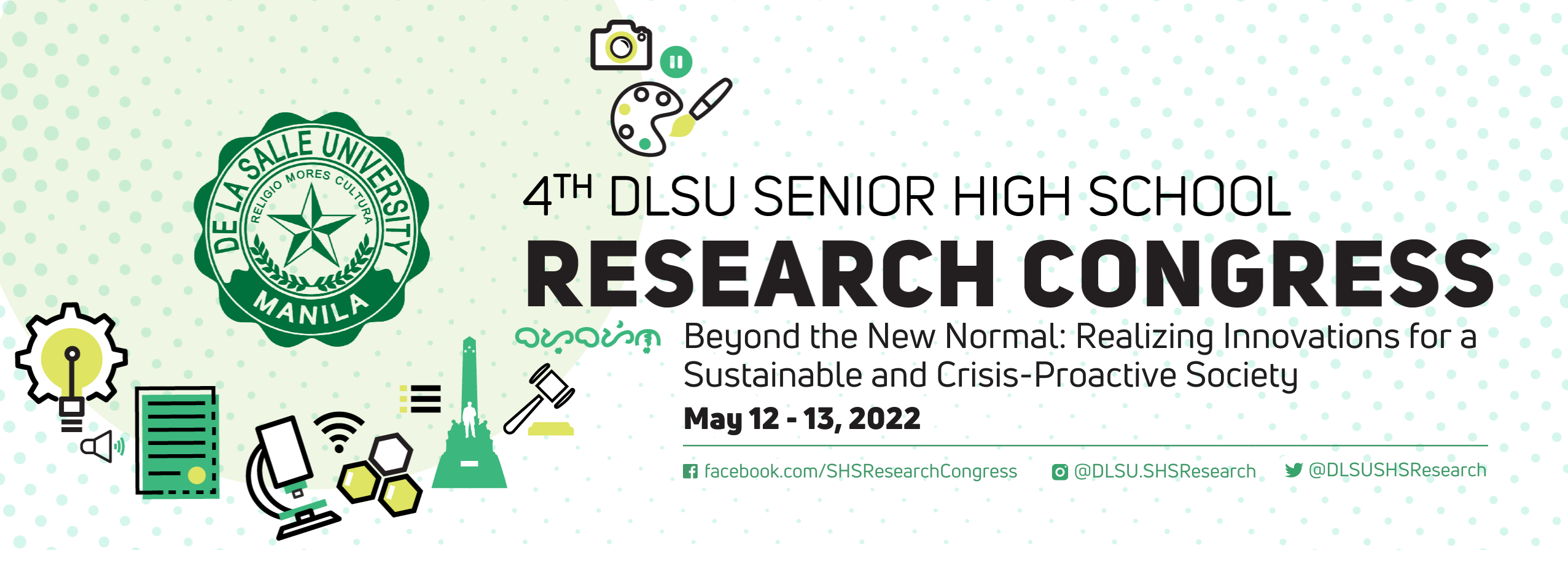Document Types
Paper Presentation
Research Theme (for Paper Presentation and Poster Presentation submissions only)
Family, Relations, and Social Structure (FRS)
Research Advisor (Last Name, First Name, Middle Initial)
Mirasol S. Madrid
Start Date
12-5-2022 3:30 PM
End Date
12-5-2022 5:30 PM
Abstract/Executive Summary
Online activism refers to the practice of social activism through online platforms such as social media. This study focused on exploring the experiences of select youth organization members with online activism in the context of the COVID-19 pandemic. A phenomenological research design was utilized to understand the phenomenon through the firsthand accounts and perspectives of the participants involved. The researchers then formulated interview questions about the main research questions. With these questions, 10 participants were interviewed regarding their experience in online activism during the ongoing pandemic as a member of youth organizations. These interviews were semi-structured and done on the Zoom video call platform after the required consent forms had been sent by the respondents. Moreover, the results from the conducted interviews were analyzed through thematic analysis, as the codes gathered from the interview transcriptions would be encompassed into overarching themes. The major findings of the study suggested that the participants seem to be keen on continuing their practices of online activism to possibly enact social change despite the challenges they may have faced when it comes to online activism during the COVID-19 pandemic. Furthermore, this research also included recommendations on how future researchers may be able to better explore the topic or other facets of the topic.
Mirasol S. Madrid
Keywords
online, activism, youth, organization, pandemic
Included in
Experiences of Online Activism amidst the Pandemic of Select Youth Organization Members in Metro Manila
Online activism refers to the practice of social activism through online platforms such as social media. This study focused on exploring the experiences of select youth organization members with online activism in the context of the COVID-19 pandemic. A phenomenological research design was utilized to understand the phenomenon through the firsthand accounts and perspectives of the participants involved. The researchers then formulated interview questions about the main research questions. With these questions, 10 participants were interviewed regarding their experience in online activism during the ongoing pandemic as a member of youth organizations. These interviews were semi-structured and done on the Zoom video call platform after the required consent forms had been sent by the respondents. Moreover, the results from the conducted interviews were analyzed through thematic analysis, as the codes gathered from the interview transcriptions would be encompassed into overarching themes. The major findings of the study suggested that the participants seem to be keen on continuing their practices of online activism to possibly enact social change despite the challenges they may have faced when it comes to online activism during the COVID-19 pandemic. Furthermore, this research also included recommendations on how future researchers may be able to better explore the topic or other facets of the topic.
Mirasol S. Madrid


